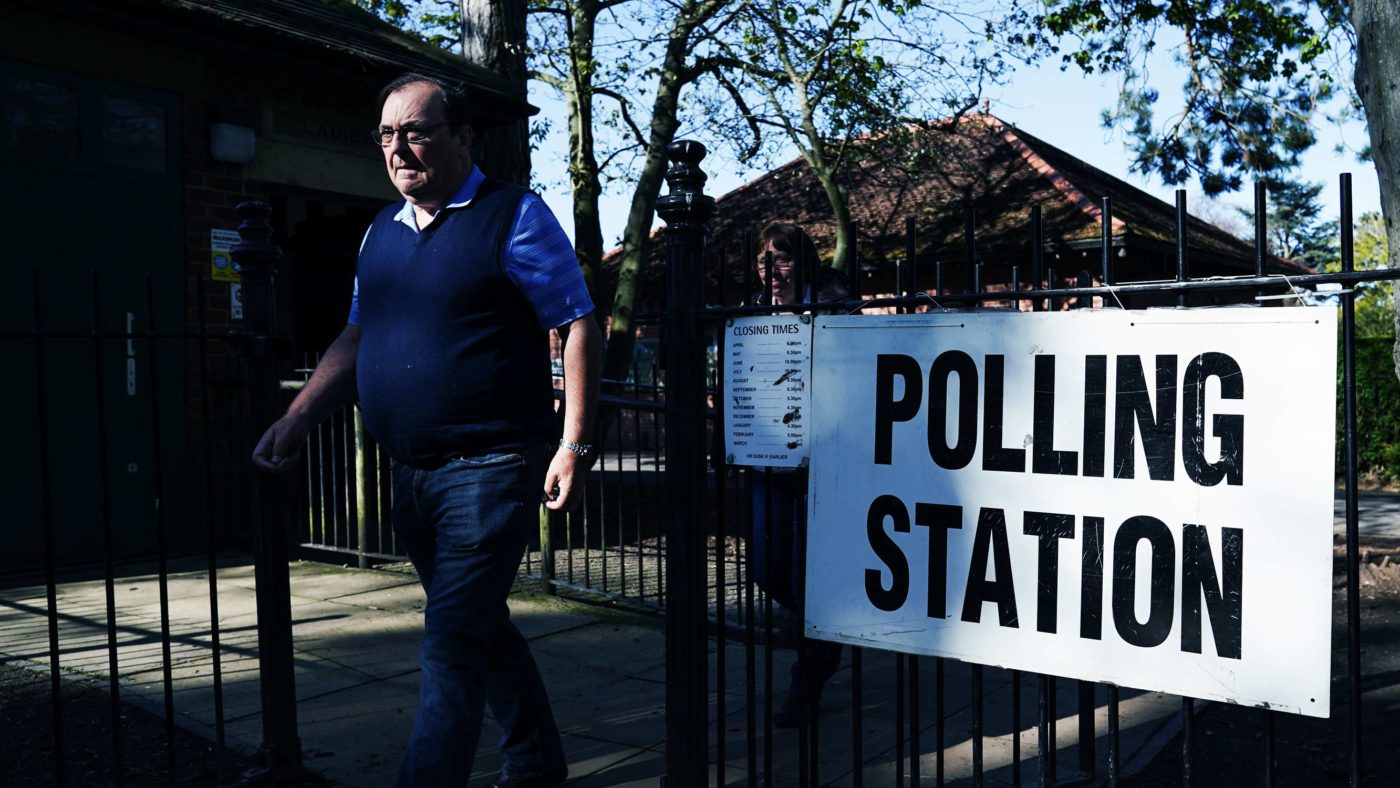Sir Keir Starmer had waited 17 months and 23 days to deliver his first conference speech as Labour leader – and some of those watching probably felt it took almost as long for him to finish making it.
If the central aim of the near 90-minute speech was ‘to understand and persuade the voters who rejected us’, then I suspect it failed spectacularly. Amid all the juvenile heckling, one intervention was actually quite telling: as Starmer spoke about Labour’s disastrous electoral showing in December 2019, a shout came from the conference floor that ‘it was your Brexit policy’. It was certainly an impolite way of making the point, but the fact remains that Starmer continues to ignore his pivotal role he played in shattering Labour’s relationship with Leave voters in seats they gave up to the Tories. He was the chief architect of the anti-democratic second-referendum policy – and former Labour supporters in seats such as Sedgefield, Bassetlaw, and Wrexham deserve a proper apology from him that he failed to provide.
What he also failed to include in his speech was a single reference to an issue which has long been central to our politics – immigration. There is an obvious disconnect between the open-borders metropolitanism which is dominant within the Labour Party and the relatively conservative attitudes towards immigration in Brexit-voting provincial market towns such as Bishop Auckland and post-industrial districts such as Bolsover – and Starmer did not even bother to address this cultural divide.
The desire to end European Union freedom of movement was driven by a range of concerns, such as the perceived impact of low-cost unregulated migration on domestic wages and how an over-reliance on foreign labour had reduced incentives for both the state and private sector to invest in our domestic workforce. The HGV driver shortage perfectly demonstrates this. Starmer should have thoughtfully presented the shortage as a post-Brexit catalyst to reduce our national overdependence on low-paid foreign workers and increase investment in our domestic workforce – through training and higher wages in vital professions and trades. This is patriotic social democracy in its truest form. Instead, the HGV driver shortage was used by Starmer to launch a largely directionless rant at the Government (an attack symptomatic of the speech’s general lack of clear focus).
Much has been said on Labour’s largely unconvincing and inauthentic ‘progressive patriotism’ under Starmer’s leadership. Simply telling delegates ‘we are patriots’ is not nearly enough to dispel the impression that his party is stuffed with people who instinctively see the worst in Britain – a trait that contrasts markedly with the easy, unforced pride in the country evinced by the Prime Minister. Even within this speech, Starmer offset his claims about patriotism by describing Britain as ‘isolated and irrelevant’. That came off as especially odd, given the Government has just signed up to a major trilateral security pact with the US and Australia. This does not sound like a country which is pursuing an isolationist foreign policy, or consigned to international irrelevance. All that remark showed is that, try as he might to claim otherwise, Starmer sees Britain’s role in the world primarily through its relationship with the EU.
Let’s not be too churlish though. This speech certainly had its redeeming features and some powerful moments. Near the beginning Starmer ‘welcomed home’ Dame Louise Ellman – who left the party after 55 years of membership over anti-Semitism. It was a heart-warming moment, with Ellman receiving a standing ovation. There was also a strong, moving section about how his father, a toolmaker, had taught him about the dignity of work and his mother, a former nurse who passed away in 2015, about the ‘nobility of care’.
Starmer also correctly called for the NHS’s emphasis to shift from emergency care to preventative measures – much needed in a country which is an international hotspot when it comes to obesity. And in what I felt was the best part of the speech, Starmer attacked the Conservatives on law and order, pointing out that the criminal justice system is bursting at the seams under the Tories, with thousands fewer police officers today than in 2010.
But the same questions continue to hang over the party. Is Labour willing to maturely engage with perfectly legitimate social and economic anxieties over immigration? Will senior figures push back on the excesses of radical left activism when it comes to issues such as trans rights? Does the Labour leader have an optimistic vision for Britain’s international standing in a world where it is no longer an EU member-state?
I suspect that much of the British public – including voters who abandoned Labour in 2019 – will still have their fair share of reservations. The speech might have taken 90 minutes, but it’s very much still half-time for Sir Keir.
Click here to subscribe to our daily briefing – the best pieces from CapX and across the web.
CapX depends on the generosity of its readers. If you value what we do, please consider making a donation.


